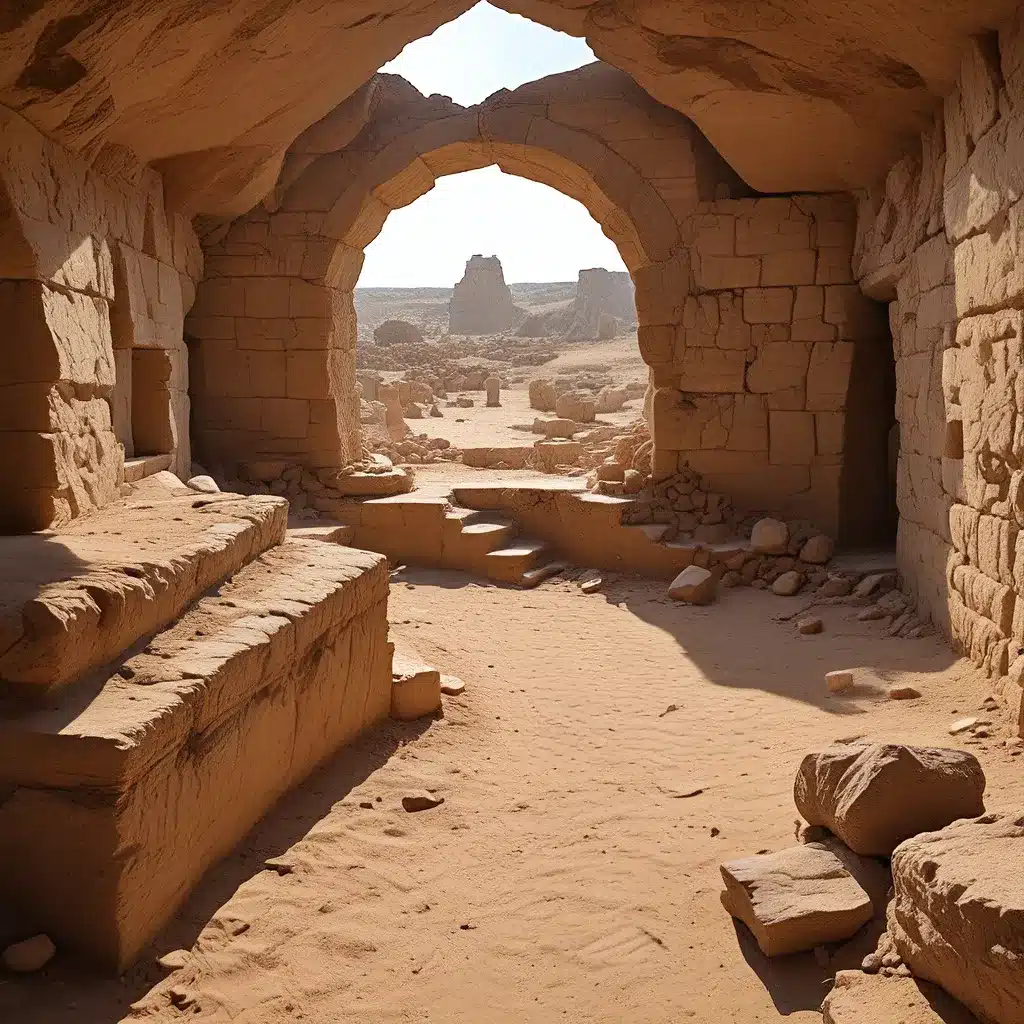
Uncovering the Mysteries of Ancient Civilizations
In the ever-evolving landscape of historical research, archaeologists and scholars are continuously unearthing new insights that challenge our long-held beliefs about the past. From the enigmatic ruins of forgotten empires to the artifacts that offer tantalizing clues about lost cultures, the field of archaeology has become a battleground of competing theories and groundbreaking discoveries.
One of the most captivating aspects of this field is the way it forces us to re-evaluate our understanding of history. As new evidence emerges, researchers are compelled to reevaluate the narratives that have shaped our perceptions of the ancient world. This process often leads to the rewriting of historical timelines and the questioning of established assumptions, ultimately shedding light on the complex and nuanced nature of the past.
Debunking Biblical Myths and Legends
A prime example of this can be found in the ongoing debate surrounding the historical accuracy of the Hebrew Bible, also known as the Old Testament. For decades, scholars have grappled with the challenge of reconciling the biblical accounts of ancient Israel and Judah with the evidence uncovered by archaeological and historical research.
One of the most contentious issues has been the question of the Exodus, the biblical narrative that describes the Israelites’ escape from Egypt and their subsequent journey to the Promised Land. While the Bible presents this as a pivotal event in the history of ancient Israel, modern scholarship has cast doubt on the veracity of this account.
According to experts, there is a notable lack of archaeological evidence to support the Exodus story as described in the Bible. Egyptian records from the relevant time period make no mention of the mass exodus of Israelite slaves, and the region of Canaan at the time shows no signs of a large-scale invasion or conquest by a foreign people. This has led many scholars to conclude that the Exodus narrative is more likely a mythological or symbolic account rather than a historical event.
Similarly, the United Monarchy of David and Solomon, often portrayed as the golden age of ancient Israel, has also come under scrutiny. Recent radiocarbon dating studies have suggested that the signs of centralized power typically associated with these kings may have appeared 50 to 100 years later than the biblical accounts claim. This has led to the questioning of the existence of a unified Israelite kingdom under the rule of these legendary figures.
Uncovering the Pre-Monarchical Period
As scholars continue to grapple with the challenges posed by the biblical narratives, a new picture of ancient Israelite history is emerging. According to the latest research, the history of Israel appears to begin around 1200 BCE, with the rise of Canaanite peoples in the highlands who gradually established new settlements and eventually formed kingdoms. This pre-monarchical period represents a crucial era in the development of ancient Israelite culture and society, one that has been largely obscured by the dominant biblical narratives.
Excavations and archaeological surveys in the region have revealed the gradual emergence of these early Israelite communities, which were likely a diverse mix of Canaanite and Semitic peoples. The lack of centralized power and written records from this period has made it challenging for scholars to piece together a complete picture, but the evidence that has been uncovered paints a complex and nuanced portrait of the region’s development.
Debunking Pseudoarchaeological Claims
Alongside the ongoing scholarly debates, the field of archaeology has also had to contend with a proliferation of pseudoarchaeological claims and conspiracy theories that have often captured the public’s imagination. These unfounded assertions, fueled by a combination of religious fervor and sensationalism, have the potential to undermine the credibility of the field and distort our understanding of the past.
One such example is the persistent belief that the Ark of the Covenant or the remains of Noah’s Ark have been discovered. Despite a lack of verifiable evidence, these claims continue to circulate, often promoted by individuals or groups with a specific ideological agenda. The danger lies in the way these pseudoarchaeological narratives can overshadow the legitimate work of archaeologists and historians, who are painstakingly piecing together the true story of our shared past.
Embracing the Complexities of the Past
As the field of archaeology continues to evolve, it is clear that the path to understanding the ancient world is paved with both revelations and challenges. The more we uncover, the more we realize how little we truly know about the complex tapestry of human history. This humbling realization is perhaps the greatest gift that archaeology can offer, as it encourages us to approach the past with a sense of wonder, curiosity, and intellectual humility.
By embracing the complexities of the past and questioning our preconceptions, we open ourselves up to a deeper and more nuanced understanding of the human experience. The ancient civilizations that once flourished in the shadows of history are now being brought to life, their stories unfolding before us like the pages of a long-forgotten book.
At The Lost Kingdoms, we are committed to exploring these fascinating realms of the past, delving into the latest archaeological discoveries and the ongoing debates that shape our understanding of history. Join us as we embark on a journey to uncover the hidden truths that lie buried beneath the sands of time.


